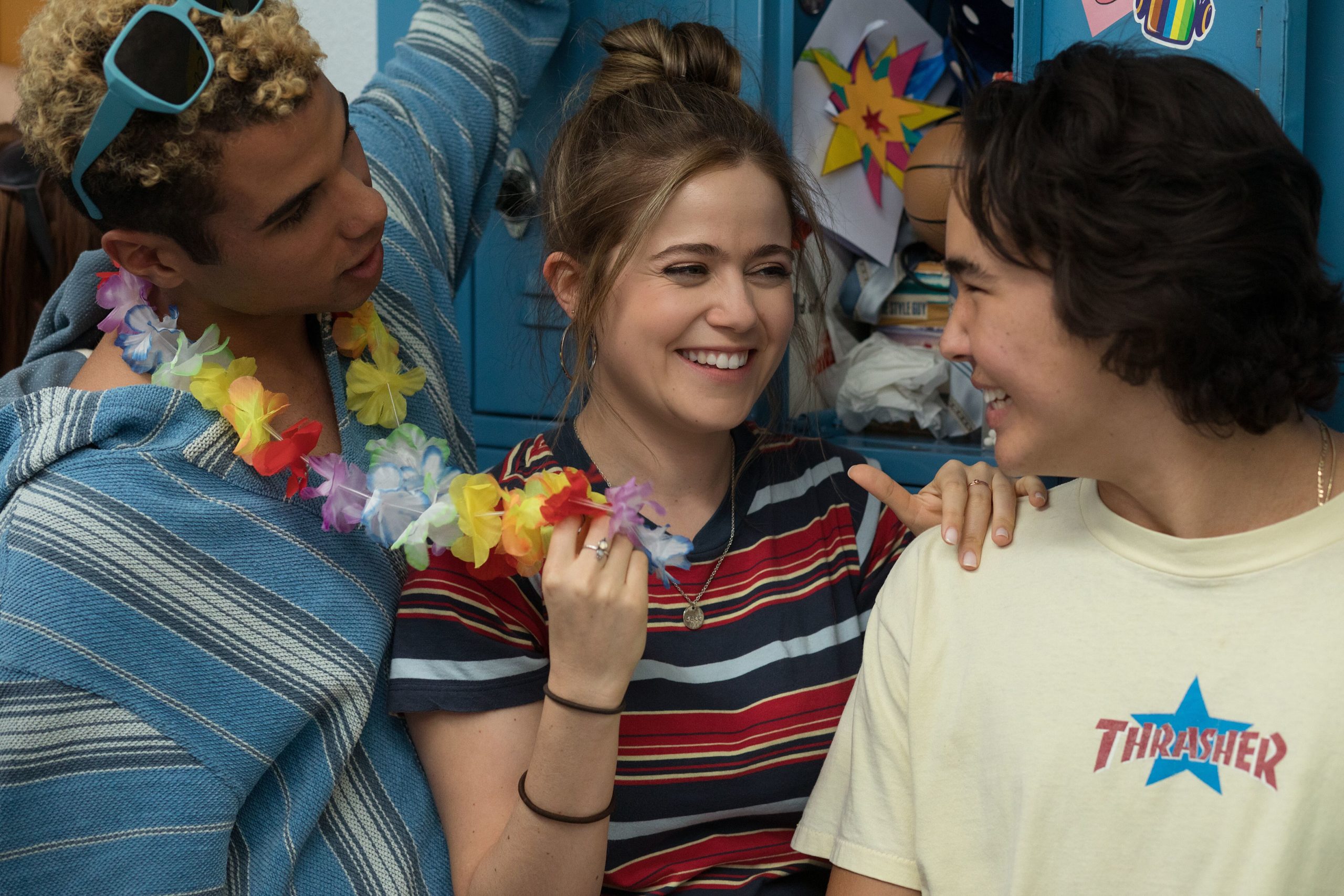For teenage girls, there’s an egregious amount of stigma around sex. It’s up to contemporary filmmakers to approach these topics critically and to authentically portray female sexuality rather than admonishing or sensationalising it. In her directorial debut, Booksmart (2019), Olivia Wilde demonstrates how young women wrestle with sexuality, internalise misogyny, and embody ‘feminism’. While it’s largely a piece about the intricacies and ultimately rewarding qualities of female friendship, Booksmart also shows how teenage girls are stereotyped, often negatively. A prime example of sexuality and societal condemnation is the minor yet thematically significant character, ‘Triple A’.
Though her real name is Annabelle, Triple A (Molly Gordon) received her nickname by giving “roadside assistance” (aka blow-jobs) to three guys. She’s defined by her so-called promiscuity and is seemingly only friends with her male classmates. Even Molly (Beanie Feldstein), the class president and an aspiring supreme court justice, calls her Triple A in a conversation with gay-best-friend Amy (Kaitlyn Dever). When Amy scolds her, Molly claims that everyone says it, thereby excusing herself of actively slut-shaming.
Molly and Amy represent two types of feminism: There’s Molly’s performative ‘girlboss’ feminism, which is only to serve herself, and there’s Amy’s genuine feminism, which she demonstrates through her post-grad plans to provide hygiene products to Ugandans. While Molly engages, however passively, in the degradation of openly sexual women, Amy overtly resists it.
Molly’s internalised misogyny becomes clear about 10 minutes later, when she encounters Annabelle, Theo (Eduardo Franco), and Tanner (Nico Hiraga) in a gender-neutral bathroom. After they debate Molly’s sex appeal and she overhears, she condescendingly reminds them that while they were “studying AP handjobs”, she was getting into Yale. Annabelle reveals that she, too, is going to Yale and challenges Molly’s assumption that a girl who’s “incredible at handjobs” can’t also get “a 1560 on the SATs.” Rather than shying away from her reputation, Annabelle reclaims her narrative, taking ownership of being both sexual and smart.
Though confined by her gender, Annabelle’s appearance is rather androgynous. While she might be labelled a ‘tomboy’, her reasons for presenting herself as such are more complex. In one of the film’s more intimate scenes, Annabelle saves a stranded Molly from a busted pre-grad party and explains: yes, she hooked up with the three rumoured guys and yes, she did so in the car and not her parents’ house because she “wanted to enjoy it.” Like Molly, she feels ostracised by many of her classmates, especially the girls, who are too busy with the cut-throat competition for male attention. In this emotionally vulnerable moment, Annabelle asks Molly not to call her Triple A at Yale, for she wants her metaphorical slate wiped clean. Annabelle represents a vicious yet familiar cycle: engaging in a sexual act, being scorned by society, and reluctantly seeking refuge in cross-gender friendship, only to be branded as ‘one of the boys’ and further renounced by women who believe that girls with too many male friends are trying to be edgy or be liked when in reality, they might just ache for acceptance.
In her graduation speech, Molly says she finally “sees” her classmates, and the camera cuts to a half-smiling Annabelle. She makes Molly think twice about her own identity—about how she’s had to work harder, not only to achieve success, but also to be taken seriously. This shared adversity and understanding manages to empower them both; despite being drastically different characters, they are alike in experience.
Though Booksmart centres around white women, it forces all of us to reconsider how we relate to and ultimately treat one another. Do we see each other as objects or as individuals? Do we acknowledge and embrace the duality of woman?
Wilde’s sophomore feature, Don’t Worry Darling, hits theatres on September 23rd.
